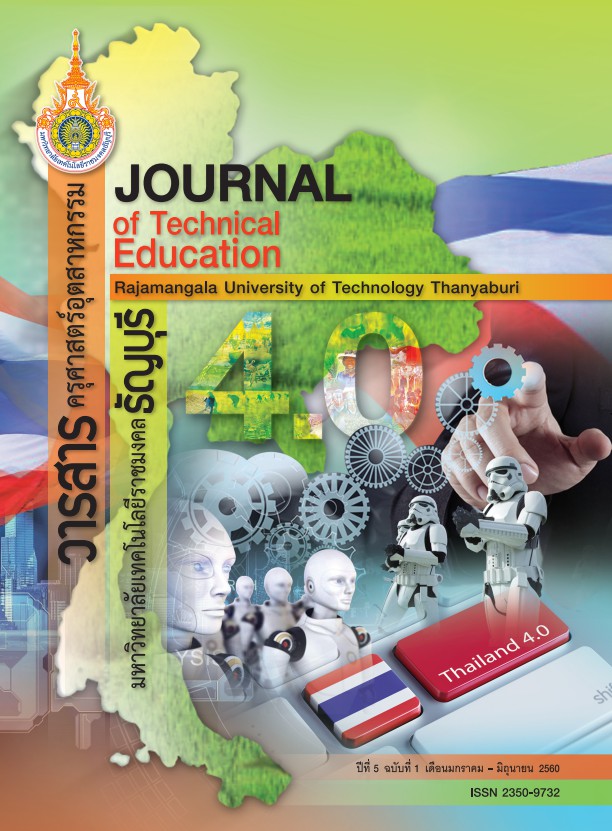ภาวะผู้นำการเปลี่ยนแปลงและองค์การแห่งการเรียนรู้ที่ส่งผลต่อประสิทธิผล โรงเรียนในสำนักงานเขตพื้นที่การศึกษาประถมศึกษา จังหวัดนครสวรรค์
คำสำคัญ:
ภาวะผู้นำการเปลี่ยนแปลง, องค์การแห่งการเรียนรู้, ประสิทธิผลโรงเรียนบทคัดย่อ
การวิจัยครั้งนี้มีวัตถุประสงค์ 3 ประการ คือ 1) เพื่อศึกษาระดับภาวะผู้นำการเปลี่ยนแปลง องค์การแห่งการเรียนรู้และประสิทธิผลโรงเรียนในสำนักงานเขตพื้นที่การศึกษาประถมศึกษา จังหวัดนครสวรรค์ 2) เพื่อศึกษาความสัมพันธ์ระหว่างภาวะผู้นำการเปลี่ยนแปลง องค์การแห่งการเรียนรู้ และประสิทธิผลโรงเรียนในสำนักงานเขตพื้นที่การศึกษาประถมศึกษา จังหวัดนครสวรรค์ และ 3) เพื่อศึกษาอิทธิพลของภาวะผู้นำการเปลี่ยนแปลงและองค์การแห่งการเรียนรู้ ที่ส่งผลต่อประสิทธิผลโรงเรียนในสำนักงานเขตพื้นที่การศึกษาประถมศึกษา จังหวัดนครสวรรค์ กลุ่มตัวอย่างที่ตอบแบบสอบถาม คือ ผู้อำนวยการและครูรวม 924 คน จากโรงเรียนในสำนักงานเขตพื้นที่การศึกษาประถมศึกษา จังหวัดนครสวรรค์ จำนวน 231 แห่ง โดยการสุ่มโรงเรียนแบบกลุ่ม เครื่องมือที่ใช้ในการวิจัย ได้แก่ แบบสอบถามมาตราส่วนประมาณค่า 5 ระดับ สถิติที่ใช้ในการวิเคราะห์ข้อมูล ได้แก่ ค่าเฉลี่ย ส่วนเบี่ยงเบนมาตรฐาน ค่าสัมประสิทธิ์สหสัมพันธ์แบบ Pearson (r) และวิเคราะห์ความถดถอยเชิงพหุคูณแบบมีขั้นตอน ผลการศึกษา พบว่า 1) ระดับภาวะผู้นำการเปลี่ยนแปลงในสำนักงานเขตพื้นที่การศึกษาประถมศึกษา จังหวัดนครสวรรค์ ในภาพรวมอยู่ในระดับมาก (M = 4.09) ระดับองค์การแห่งการเรียนรู้ในสำนักงานเขตพื้นที่การศึกษาประถมศึกษาจังหวัดนครสวรรค์ ในภาพรวมอยู่ในระดับปานกลาง (M = 3.57) และระดับประสิทธิผลโรงเรียนในสำนักงานเขตพื้นที่การศึกษาประถมศึกษา จังหวัดนครสวรรค์ ในภาพรวมอยู่ในระดับมาก (M = 3.99) 2) ภาวะผู้นำ การเปลี่ยนแปลงมีความสัมพันธ์เชิงบวกระดับสูงมากกับประสิทธิผลโรงเรียนอย่างมีนัยสำคัญทางสถิติ (r = 0.93, p<.01) องค์การแห่งการเรียนรู้มีความสัมพันธ์เชิ2งบวกระดับสูงกับประสิทธิผลโรงเรียนอย่างมีนัยสำคัญทางสถิติ (r = 0.67, p<.01) และองค์การแห่งการเรียนรู้มีความสัมพันธ์เชิงบวกระดับสูงมากกับภาวะผู้นำการเปลี่ยนแปลงอย่างมีนัยสำคัญทางสถิติ (r = 0.77, p<.01) 3) ภาวะผู้นำการเปลี่ยนแปลงและองค์การแห่งการเรียนรู้มีอิทธิพลต่อประสิทธิผลโรงเรียน อย่างมีนัยสำคัญทางสถิติที่ระดับ .01 4) ภาวะผู้นำการเปลี่ยนแปลง สามารถอธิบายการผันแปรของประสิทธิผลโรงเรียนได้ร้อยละ 86.20 (R2 = .862) อย่างมีนัยสำคัญทางสถิติที่ระดับ .01 องค์การแห่งการเรียนรู้สามารถอธิบายการผันแปรของประสิทธิผลโรงเรียนได้ร้อยละ 45.20 (R2 = .452) อย่างมีนัยสำคัญทางสถิติที่ระดับ .01 ภาวะผู้นำ การเปลี่ยนแปลงและองค์การแห่งการเรียนรู้สามารถอธิบายการผันแปรของประสิทธิผลโรงเรียนได้ร้อยละ 86.70 อย่างมีนัยสำคัญทางสถิติที่ระดับ .01 และตัวแปรองค์ประกอบภาวะผู้นำการเปลี่ยนแปลง ด้านบารมีเชิงคุณลักษณะและตัวแปรองค์ประกอบภาวะผู้นำการเปลี่ยนแปลง ด้านการจูงใจเพื่อสร้างแรงจูงใจ สามารถร่วมกันอธิบายการผันแปรของประสิทธิผลโรงเรียนได้ร้อยละ 92.10 (R2 = .921) อย่างมีนัยสำคัญทางสถิติที่ระดับ .01
เอกสารอ้างอิง
ปาลิกา นิธิประเสริฐกุล. (2547). ปัจจัยด้านภาวะผู้นำและองค์การแห่งการเรียนรู้ที่ส่งผลต่อประสิทธิผลของโรงเรียนประถมศึกษา. สังกัดสำนักงานคณะกรรมการการศึกษาขั้นพื้นฐานในเขตพัฒนาพื้นที่ฝั่งทะเลตะวันออก.วิทยานิพธ์ปริญญามหาบัณฑิต. มหาวิทยาลัยบูรพา.
พงษ์เทพ จันทสุวรรณ. (2554) ภาวะผู้นำวัฒนธรรมองค์การกับประสิทธิผลองค์การของโรงเรียนในสังกัด กรุงเทพฯ : ตัวแบบสมการโครงสร้าง. วิทยานิพนธ์ปริญญาดุษฎีบัณฑิต. สถาบันบัณฑิตพัฒนบริหารศาสตร์.
พงษ์เทพ จันทสุวรรณ, เอกรัตน์ ดวงปัญญา, ชาญณรงค์ เศวตาภรณ์ และอนงนาฎ ภูมิภักดี. (2555). ภาวะผู้นำการเปลี่ยนแปลง วัฒนธรรมองค์การ องค์การแห่งการเรียนรู้และประสิทธิผลของหน่วยงานในสถานีตำรวจนครบาล: การวิเคราะห์เส้นทาง. วารสารวิชาการมหาวิทยาลัยเจ้าพระยา, 1, 17 - 34.
ลือชัย จันทร์โป๊. (2546). รูปแบบการเป็นองค์การแห่งการเรียนรู้ของโรงเรียนอาชีวศึกษาคาทอลิกในประเทศไทย. วิทยานิพนธ์ปริญญาดุษฎีบัณฑิต. มหาวิทยาลัยเทคโนโลยีพระจอมเกล้าเจ้าคุณทหารลาดกระบัง.
Avolio, B. J., Bass, B. M. & Jung, D. I. (1999). Re-Examining the Components of Transformational and Transactional Leadership Using the Multifactor Leadership Questionnaire. Journal of Occupational and Organizational Psychology, 72, 441 - 462.
Bass, B. M. & Avolio, B. J. (1995). Transformational Leadership Development: Manual for the Multifactor Leadership Questionnaire. Palo Alto, CA: Consulting Psychologists Press.
______. (1997). Full Range Leadership Development: Manual for the Multifactor Leadership Questionnaire. Palo Alto, CA: Mind Garden.
Dubrin, J. (1998). Leadership Research Finding : Practice and Skills. Boston Houghton : Mifflin Company.
Ji Hoon Song, Beak-Kyoo (Brian) Joo & Chermack, Thomas J. (2009). Human Resource Development Quarterly, 1(20), 3 - 4.
ดาวน์โหลด
เผยแพร่แล้ว
รูปแบบการอ้างอิง
ฉบับ
ประเภทบทความ
สัญญาอนุญาต
บทความที่ได้รับการตีพิมพ์เป็นลิขสิทธิ์ของมหาวิทยาลัยเทคโนโลยีราชมงคลธัญบุรี
ข้อความที่ปรากฏในบทความแต่ละเรื่องในวารสารวิชาการเล่มนี้เป็นความคิดเห็นส่วนตัวของผู้เขียนแต่ละท่านไม่เกี่ยวข้องกับมหาวิทยาลัยเทคโนโลยีราชมงคลธัญบุรี และคณาจารย์ท่านอื่นๆในมหาวิทยาลัยฯ แต่อย่างใด ความรับผิดชอบองค์ประกอบทั้งหมดของบทความแต่ละเรื่องเป็นของผู้เขียนแต่ละท่าน หากมีความผิดพลาดใดๆ ผู้เขียนแต่ละท่านจะรับผิดชอบบทความของตนเองแต่ผู้เดียว




